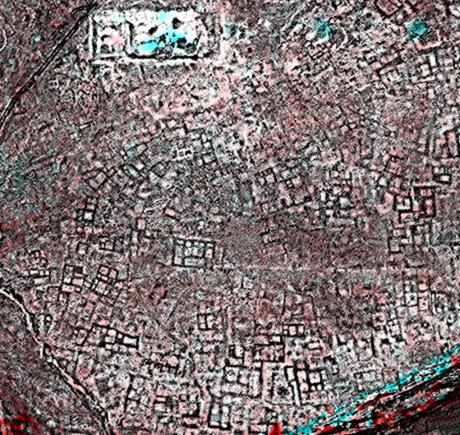“I wish for us to discover the millions of unknown archaeological sites across the globe. By building an online citizen science platform and training a 21st century army of global explorers, we’ll find and protect the world’s hidden heritage, which contains clues to humankind’s collective resilience and creativity.”
— Sarah Parcak, 2016 TED Prize
A rethink of ways to study ancient civilizations has been apparent by daily reports of ancient treasures being sold, stolen or destroyed. Egyptologist Sarah Parcak is spending her $1 million 2016 TED Prize on a online crowd-sourcing platform called Global Xplorer.
The idea is to use satellite imagery to search for clues of past human activities. The images are taken by spacecraft that are flying 640 km (400 miles) above the Earth’s surface. Hopefully this approach may lead to the discovery of unknown archeological sites. Archeologists have explored around 10 percent of the Earth surface so the chances are that this approach can reveal new exciting things. When something is buried is will be covered by vegetation, soil or sand or something modern is built on top of it. A space archeologist does not see what is underground, instead they explore faint features that indicate that something that is invisible to the naked eye may be present – like a buried pyramids, or tomb. A search for an explanation to a pattern. Why has the environment changed in this specific detectable way?

The archaeological site of Tanis.
Crowd-sourcing is an approach to take archeology into the 21st century. Sarah says:
“If we want to learn about our past, we need to invert the pyramids. A hundred years ago archeology was for the rich, 50 years ago it was for men, and now it’s mainly for academics. But archeology can be for everyone. We can crowdsource exploration and speed up the process of discovering and protecting ancient sites.”
Is it important to understand ancient civilizations? Should we not focus the attention on solving the world’s problems?
Perhaps a focus on the future does not mean that the past can be ignored. Archeology can help us to explore questions about who we are and although we might be living in the digital era, studying ancient civilizations may help us grow us humans.
During TED Talk below, Sarah describes her plans for how she would spend the $1 million that accompanies the prize. The idea is that the winner of the prize should think big and explore ideas that can change the world. Imagine that you would win this prize, how would you spend the money and how would you change the world? Could you invent something that detects hidden patterns?Go here to read more about this project.
